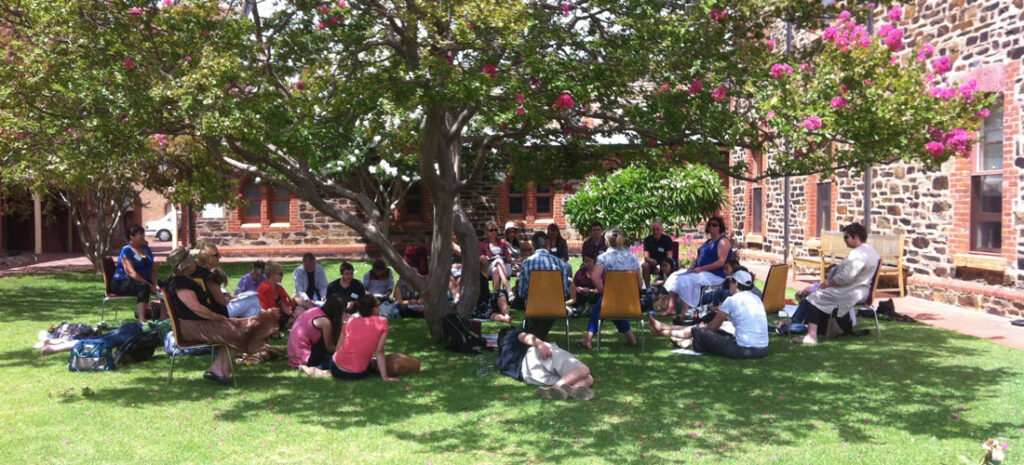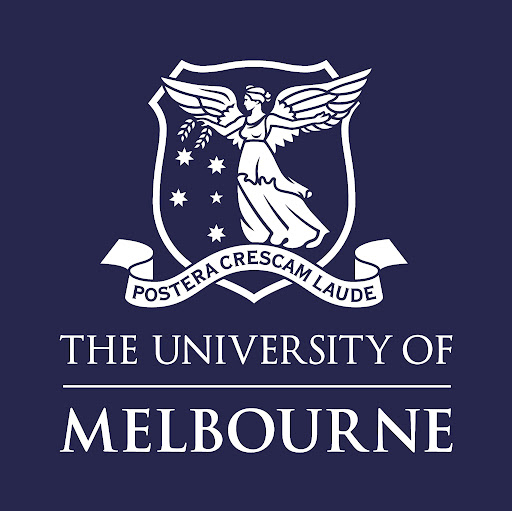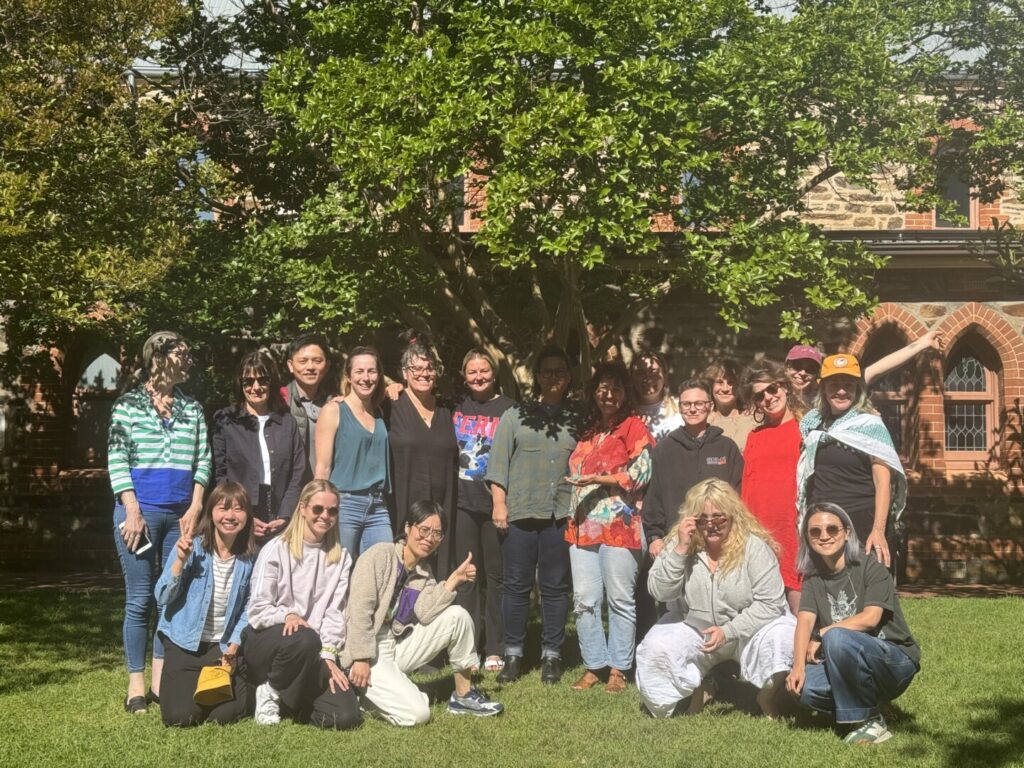Master of Narrative Therapy and Community Work

The Master of Narrative Therapy and Community Work is a collaboration between Dulwich Centre and University of Melbourne (Department of Social Work).
It’s a practice-based program, with a wide-range of national and international teachers. It’s been specifically designed to spark continual innovation in the field.
About the Master
We are very excited about what this program is meaning for narrative ideas. It’s a practice-based program, with a wide-range of national and international teachers. It’s also been specifically designed to spark continual innovation in the field. Participants have graduated from Singapore, Canada, Australia, Japan, Spain, Hong Kong, Israel, China, Rwanda, Tanzania, Ireland, Chile, South Africa, Denmark, Qatar, Sri Lanka, Turkey, Mexico, India, New Zealand and the UK and their innovative work is stretching the field.
Tileah Drahm-Butler (of the Durrumbal/Kullilli and Yidinji nations) is a graduate of the Masters, and a member of the International Dulwich Centre Teaching Faculty. You can read about her work decolonising social work using narrative ideas here.
We have included below some formal information about the program, including an application guide and a frequently asked questions. For any further questions, please email us.

The Master of Narrative Therapy and Community Work has been specifically designed to develop participants’ practice-skills, encourage innovation, and enable a rigour in relation to practice-research-theory. It is a University of Melbourne postgraduate specialist qualification consisting of 3 subjects:
- Advanced Narrative Skills Development
- The Art of Narrative Practice
- Narrative Practice and Research Synthesis
In 2025 this program will be delivered online. Hence, it is accessible to both local and international students.
The online learning adventure will include two intensive two-week teaching blocks in March and October/November. And also regular asynchronous learning and synchronous online events, rituals, meetings and celebrations.
The program provides participants with the flexibility to complete the degree either full-time and over two semesters as a twelve month program, or part-time and over four semesters as a two-year program.
The academic team will consist of leading national and international trainers. The faculty will be drawn from the Dulwich Centre International faculty and the University of Melbourne.
Those applying to undertake the degree would typically be professionals working with individuals, families or communities who are interested in enhancing their clinical and practice-research skills in narrative therapy and community work. The combination of intensive delivery supported by distance and on-line learning means it is accessible to students across Australia and internationally.
The entry requirements are:
- An undergraduate degree in a related discipline; and
- Evidence of two years of relevant work experience; and
- Evidence of completion of prior narrative therapy studies at Dulwich Centre or equivalent; and
- Completion of the personal statement document (maximum 500 words)
- A professional referee report [completed on the attached template]
Please note, while not a formal entry requirement, in order to successfully complete the course, it is necessary to be working/volunteering in a context in which you are able to put narrative ideas into practice for at least five hours per week during the duration of the Masters.
There is an entry pathway for Aboriginal and Torres Strait Islander practitioners without an undergraduate degree. If this is the case for you, write to us at masters@dulwichcentre.com.au. 31 Indigenous Australians have already graduated from this Master’s program. Some have not had undergraduate degrees … and some of these participants have graduated with First Class Honours.
Interviews, referee reports or employer references may also be a part of the application process.
Recognition of Prior Learning for those who have completed long-term training programs with Dulwich Centre (International Training Program or Graduate Certificate programs in Hong Kong, Greece or Singapore) means that they are only required to attend one of the intensive teaching blocks, and to pay reduced fees. This is also true for graduates of the Yearlong Narrative Therapy Program at Evanston Family Therapy Center (USA).
If you are unsure whether your previous experience or qualifications would be sufficient, please email us and we can provide further information.
- Advanced Narrative Skills Development
In this subject, students acquire skills in engaging with ten key practice maps of narrative therapy, including externalising, re-authoring, re-membering, definitional ceremony, documentation, absent but implicit, failure conversations map, responding to trauma, engagement with folk culture metaphors (tree of life/team of life/kite of life) and enabling contribution or social action. They also develop skills in analysing and evaluating the effects of their use of these maps of practice and in proposing alternative questions as well as lines of enquiry, in therapeutic and/or collective practice.
- The Art of Narrative Practice
Students acquire a working knowledge of the diversity of ways in which narrative practices are being engaged with children, young people and adults as well as with individuals, groups, organisations and communities, in a range of different cultural contexts across the globe. Students are required to analyse developments in the field in relation to their implications for their own practice in their own local cultural context.
- Narrative Practice and Research Synthesis
Students are challenged to innovate their own forms of narrative practice. Teaching focuses on some of the different methods of innovating that have contributed to new forms of narrative practice, such as co-research, partnerships, cross-cultural invention, folk cultural innovation, synthesis of practice with readings from outside the field, responding to challenges in relation to politics of experience and translations across languages. This involves revisiting some of the social and intellectual histories of narrative practice and drawing on recent international innovations as case studies of innovation. Drawing on these histories and practices of innovation, in the second half of the subject, students are then required to undertake an original piece of practice research, with findings presented in a standard required for publication.
Fees
Fees for 2024 are AUD$24,064 for all students and are subject to an annual increase. Fees include tuition, course materials and access to online resources and the opportunity to attend a public graduation ceremony. As enrolled students of the University of Melbourne, students have access to a range of facilities and amenities provided by the University of Melbourne.
More information about fees and payment is available via the University of Melbourne.
FEE-HELP
FEE-HELP provides interest-free loans to eligible students to help pay part or all of their tuition. FEE-HELP is only available to Australian citizens. For more information click here.
Scholarships
Scholarship for trans participants
In 2024, Dulwich Centre Foundation will offer a scholarship of AUD$3000 to a transgender participant of the Master of Narrative Therapy and Community Work who has indicated they would like to receive the funds. In addition, alongside the funds, recipients of this scholarship will receive supervision sessions with a Dulwich Centre Faculty member who has significant experience in narrative practice through a trans lens. The funds will be awarded directly to the participant and can be spent on anything that will assist their education journey. For more information, click here or email masters@dulwichcentre.com.au
Anita Morawetz Scholarships
Thanks to the generosity of the Anita Morawetz Trust, a number of scholarships covering part of the tuition fee for this course are available.
Applications for this scholarship are submitted during the Masters application, and close on the 30th of November 2023. You can find more information about this scholarship and how to apply on the University of Melbourne’s website.
Robyn Moylan Scholarship
Robyn Moylan was an Arrernte Woman who worked and lived in Cairns. Robyn was a well-respected professional and Elder in the Cairns and surrounding communities. She was well known amongst vulnerable families as someone they could trust and would respect them for who they were and would always listen to what they said they needed. Robyn always had positive regard for people she worked with and always saw their strengths and helped them to see them too.
Narrative practice came easily to Robyn as it resonated with the way she already worked. Studying Narrative Practice gave her additional tools and deeper understanding of the practices and how to apply them to produce the most benefit for those with whom she worked. Robyn believed that Narrative Practice helps to elicit peoples hopes and dreams in their own life.
Robyn encouraged many of her colleagues to study Narrative Practice and she would be thrilled to know her legacy in this area has been carried forward through this scholarship.
The objective of the Robyn Moylan Scholarship is to support an Aboriginal and/or Torres Strait Islander person to undertake studies in Narrative Therapy and Community Work. This scholarship specifically hopes to support a person/a group of people who work with Aboriginal and/or Torres Strait Islander families, including people who work with women and men in response to violence. The Committee hopes that this scholarship will support continued excellence in this area of practice. The Committee has particular intention to support Aboriginal and/or Torres Strait Islander people who live in remote areas, rural areas and discreet Aboriginal communities. All Aboriginal and/or Torres Strait Islander people are encouraged to apply.
You can find more information about this scholarship and the application form and instructions here.
Applications are submitted through the University of Melbourne’s website.
We have also created an application guide to assist participants in applying for the Masters, in both a text-only version, and a version with images. Please note that the version with images may not be compatible with screen readers, as it contains complex images.
For some answers to commonly asked questions from potential applicants, please see this document here.
Can I do the Master of Narrative Therapy and Community Work?
Class of 2014 Valedictory Address

This Masters program has been accredited by the Australian Counselling Association (ACA)! For more information about what this means for graduates of the Masters, see the ACA website.

